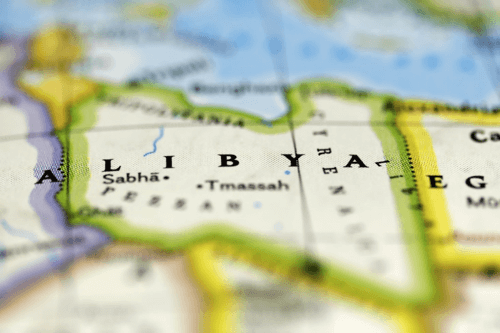
Who will win the Libyan oil war?
As the war between rival groups and their supporters continues in Libya, the country’s oil industry’s fate remains unclear.
Libya’s internationally recognized Government of National Accord, GNA, managed to withdraw General Khalifa Haftar’s troops from Tripoli earlier this month. Consequently, Turkey achieved a significant geopolitical victory. Now, the war for Libyan oil takes place in Egypt, and the country is under threat. 
The city of Sirte is a gateway to Libya’s major crude facilities and an important stronghold for General Khalifa Haftar.
After removing General Haftar from the besieged areas, the government of National Accord thought that the war was over for the general. Still, Egypt is facing action, and the country considers it a declaration of war. After waiting on the sidelines, Haftar’s allies had to react, and the war for Libya has now entered the next phase. It will have far-reaching geopolitical consequences.
Haftar controls Sirte – the city that provides access to the country’s vast oil facilities
Turkish officials traveled to Tripoli last week to negotiate with the Government of National Accord.
Egypt’s president warned that if forces agreed to advance toward Egypt, it would need to react immediately. The government of the National Accord called the warning a war and responded strongly.
Sirte is about 280 miles from Tripoli and is a leading strategic city for Haftar. It is under attack but has not retreated. Turkey has called on Haftar’s forces to withdraw from the agreement so that the GNA can agree to a ceasefire. However, the city is a stronghold of Haftar and a key to controlling Libyan oil.
Sirte is on the coast and provides access to Libya’s vast oil facilities. All the foreign forces involved in this war are now lined up around it. Haftar has been controlling Sirte since June 2019.
In May, when the government of National Unity and Turkey withdrew Haftar from Tripoli’s surroundings, they imagined that the general would easily surrender, and Russia would agree with Turkey. All these developments in the war would end in favor of the GNA. This has not happened because it is mostly an oil issue. The game is now about a gateway to all Libyan oil facilities, including the country’s oil export terminals.
Libyan black gold exports dropped 92%
General Khalifa Haftar, who has backing from Russia, controls much of eastern and southern Libya and has been trying to seize Tripoli for more than a year. He halted almost all Libyan oil production in January to push for a surrender to the Sarraj government. Haftar has always objected that Tripoli, which receives all of Libya’s oil revenues through the central bank, is being distributed unfairly and to the detriment of the country’s eastern regions.
Al-Sharareh oil field, Libya’s largest oil field, and the newly started Al-Filah field have resumed operations after armed groups attacked. Libya has produced little oil since January amid a civil war that has besieged ports and commodity fields.
According to the Libyan National Oil Company, crude exports have fallen 92 percent due to the siege of oil facilities by forces loyal to General Khalifa Haftar. The country has lost nearly $5 billion in oil revenues.
Libya, which has the largest crude reserves in Africa, could not participate in the OPEC oil production reduction pact. The country has not seen peace since the 2011 revolution. Libyan oil production will not have a revival until the Libyan National Army, General Haftar and the Sarraj Government of National Accord establish a ceasefire.
-
Support
-
Platform
-
Spread
-
Trading Instrument




